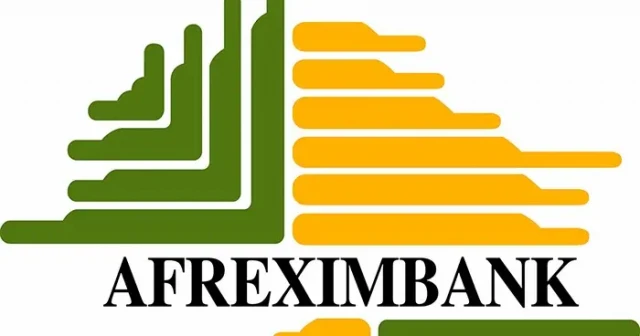The 2025 African Trade and Economic Outlook (ATEO) Report, a study conducted by Afreximbank, indicates that Africa’s real GDP is expected to reach 4.1 percent in 2026 and 4.2 percent in 2027.
The 2025 ATEO provides a comprehensive examination of the continent's economic and trade performance, forecasting Africa's growth path in the near to medium-term.
It highlights the key macroeconomic and trade dynamics that are influencing Africa’s recovery, outlining opportunities for sustainable expansion despite increasing global and domestic uncertainties.
According to the report, 41 percent of African nations are projected to experience growth of at least five percent, nearly double the global growth rate of 21 percent, which underscores the continent's increasing significance as a contributor to global economic progress.
The gradual recovery of Africa is expected to be bolstered by heightened global demand for African exports, a trend of disinflation, and the enactment of structural reforms aimed at diversifying African economies.
However, there are noted downside risks to Africa's economic prospects, such as escalating geopolitical tensions and volatile commodity prices. The report warns that an economic slowdown in the United States and China could also influence international financial conditions and the demand for African resources. In addition, internal conflicts and climate change pose threats to stability and growth.
On the positive side, potential opportunities include a forecasted decline in global interest rates, anticipated to begin in 2025 if geopolitical uncertainties are maintained, which could improve access to financing. Furthermore, the African Continental Free Trade Area (AfCFTA) offers a chance to enhance economic integration and intra-African commerce, reducing susceptibility to external shocks in the medium term.
To mitigate potential risks, the report proposes various short-term strategies, such as adopting a thoughtful and proactive monetary policy approach, and strengthening resilience to climate-related and geopolitical disruptions. Other suggested strategies include enhancing domestic consumption along with the service sector and accelerating the implementation of the AfCFTA agreement.
In the medium term, the report advocates for a shift in strategies toward economic diversification through significant investments in human capital development and workforce training within emerging sectors. Additionally, improvements in economic governance, public infrastructure, and initiatives to strengthen intra-African trade dynamics are recommended.
The report outlines several challenges and solutions for Africa to achieve stability and sustainable development in a rapidly evolving global environment. The first challenge noted is Africa’s dependence on commodity exports, which has left countries vulnerable to price fluctuations in global markets. The report emphasizes the need for a quicker structural transition toward a more diversified and resilient economy.
The second challenge pertains to debt sustainability, with many African nations dedicating over 50 percent of their revenues to servicing debts due to substantial development financing needs. The report asserts that ensuring debt sustainability mandates more efficient public expenditure and prioritization of investments that promote growth.
Human capital and skills development emerges as the third challenge. To address this, the report advocates increased government investment in healthcare and fostering collaboration between the public and private sectors. Enhanced training in science and technology is crucial for skill development and talent distribution, which are vital for effective structural transformation.
The fourth identified challenge is the lack of positive social outcomes from economic growth, highlighted by slow advances in poverty alleviation. To enhance the poverty-reducing capacity of growth, it is essential to improve the access to basic public infrastructure and services, as well as to reduce reliance on natural resources through structural transformation. Tackling inequality should be a core aspect of sustainable development goals, ensuring fair access to quality education, healthcare, energy, transportation infrastructure, and financial services.
Lastly, the report identifies growing concerns over environmental degradation and the rising incidence of extreme weather events as the final challenge.
For sustainable economic growth, promoting green growth must coincide with comprehensive policy strategies that address both climate change adaptation and mitigation while considering the continent’s developmental needs and challenges.
The 2025 ATEO delivers a thorough analysis of Africa’s economic and trade performance, outlining the continent’s growth path in the near to medium-term.




















